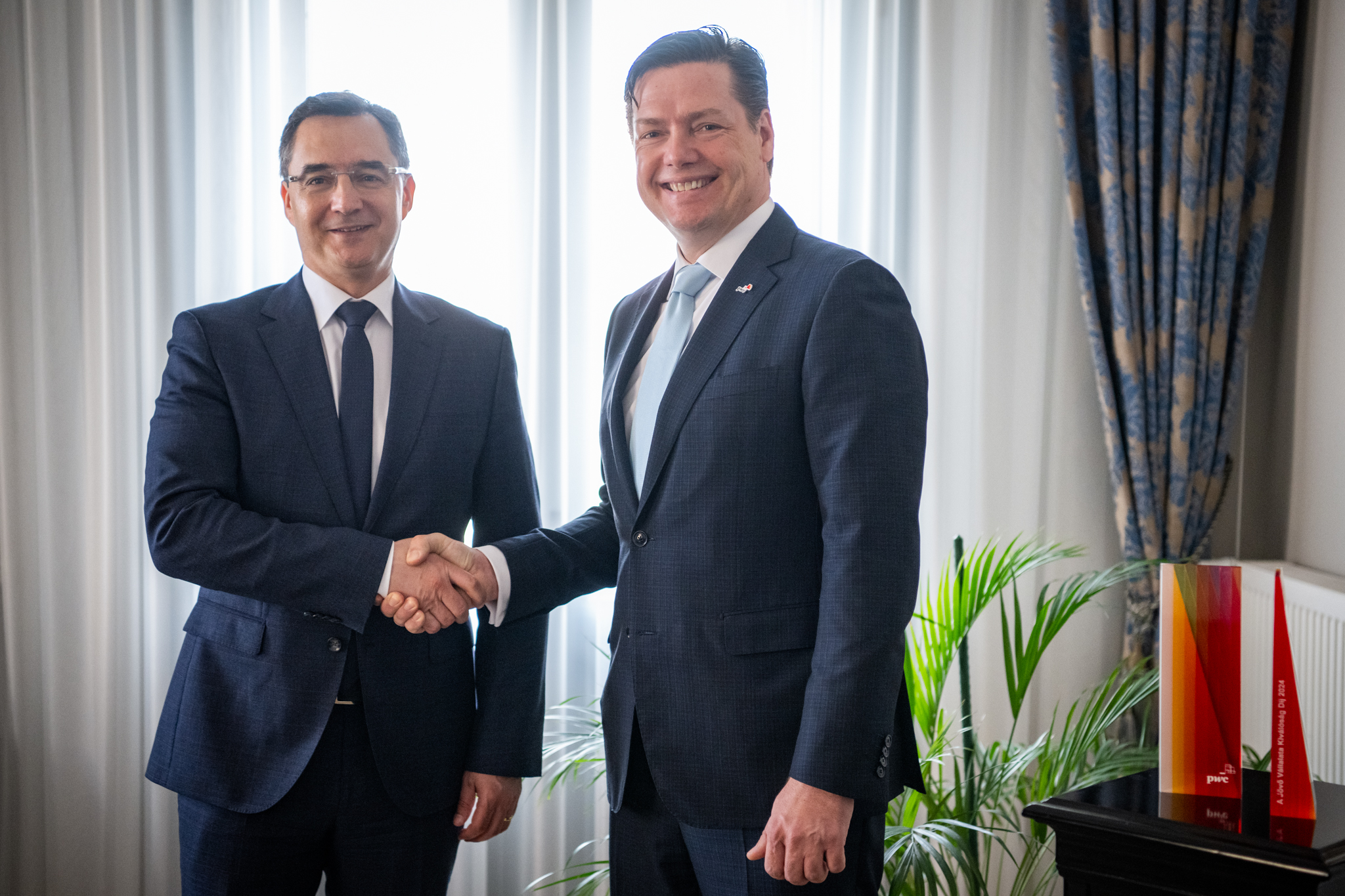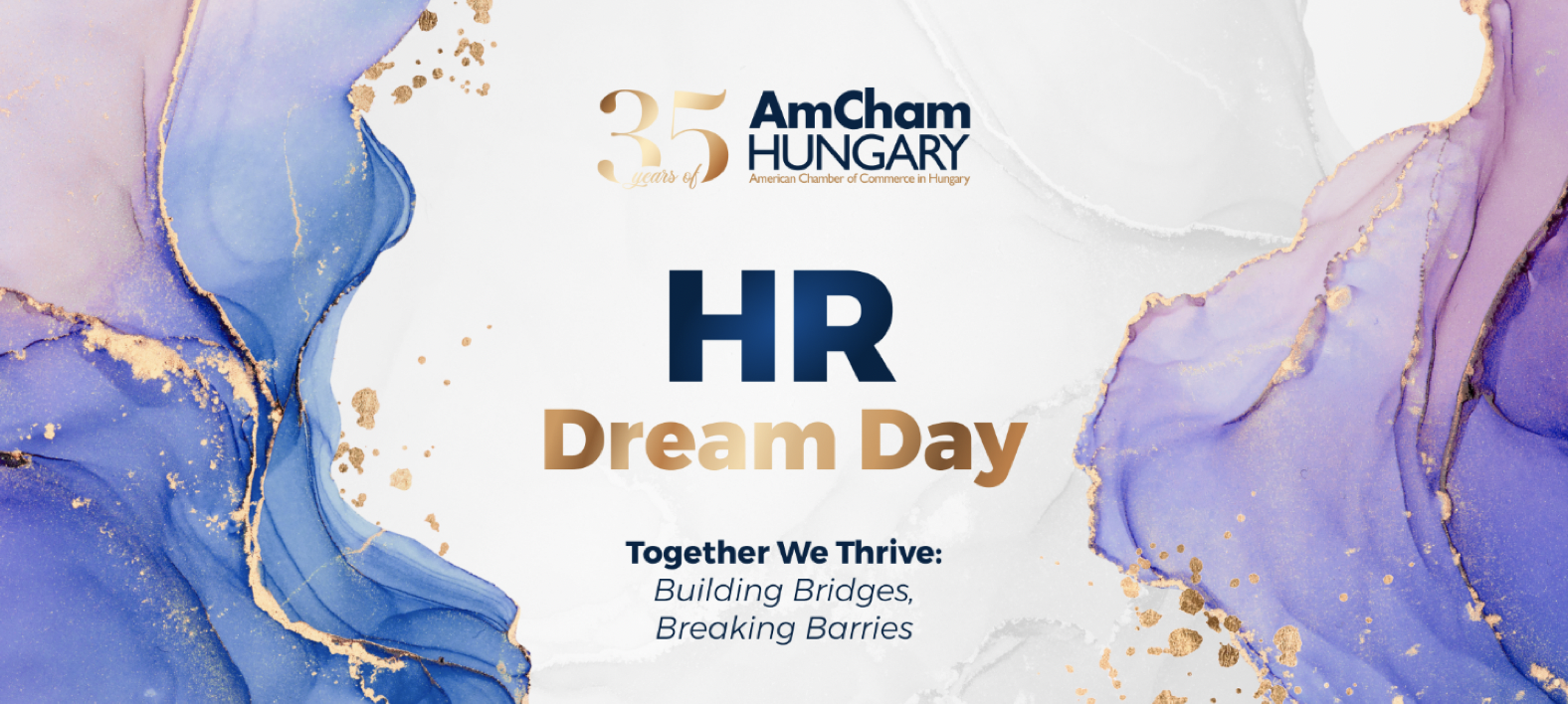The art of leadership

Dr. Sándor Kürti, co-founder of one of the most renowned Hungarian family enterprises, Kürt Corporation, tells the BBJ about the beginning, a piece of advice worth billions, philanthropy, the art of leadership and succession planning.
Q: When I entered the building, I saw many awards in the displays and on the walls.
A: Well, we never set it as a goal to win awards, but we have a certain dedication to our mission: to be the best in our field. Awards just follow the process. Without underestimating the importance of awards, our approach is quite different. We don’t want to be Best Employer for Underprivileged Workers, but we need these workers to be happy in order to do their jobs successfully.
Q: Where did you get the general idea to found a data recovery company? Was there any demand for it in 1989?
A: Not at all. Before the change of regime in 1989, the founders of Kürt were all employed at high-tech Hungarian corporations involved in the hard disk business. Hungary had an ambitious plan to manufacture a magnetic disk drive, the predecessor of the HDD. Licenses were bought from France and a fair number of experts were trained. Unfortunately, these huge Hungarian corporations went bankrupt with the fall of the socialist regime, like Magyar Optikai Művek, which was a main supplier of the Red Army and Zeiss Jena. Now its headquarters is a shopping center in the 12th district.
The founders of Kürt joined their forces because otherwise they would have all lost their jobs and they didn’t want to sell vegetables for a living, but rather wished to exploit their real expertise. At the time the company was called to life, its founders already had 30 different patents registered, all linked to magnetic data storage. We tried to figure out our opportunities. We didn’t have enough money to manufacture, so we tried to find something in the service area. We had a wheel balancer for magnetic disks and a computer – these were the first assets at Kürt.
Our first order came from the Red Army for five magnetic disk laundry machines. We put them together from a washing machine engine, a Lada screen washer engine and a 50-liter aluminum washbasin. We could build a machine with the same properties as one with cutting-edge Western technologies, which wasn’t affordable for the Soviets due to the then-existing CoCom lists. When we were done and they were satisfied, we said that we can save data from hard disk drives as well.
Although the magnetic disk manufacturing project was canceled in Hungary, many installations had already been built, like the cleanroom at the research institute Központi Fizikai Kutatóintézet. We got those areas, so at least someone was using them. It has a huge value in absolute terms and for us, too. We managed to transfer the professionals and the manual knowledge, so we could really claim to being in possession of hard disk drive repair knowledge if necessary. It started like this. Back at that time, being market-driven from the beginning was entirely impossible.
Q: Kürt was a market leader in the data recovery business, and it is still market leader in many aspects.
A: Actually, our field of operation is a very narrow segment of the market. IT security is a small area in IT, and data recovery is a small area within security. We found a niche where we settled down and where we feel at home and want to be good.
However, this narrow line is broad enough for us to live and prosper. If we were bigger, the big manufacturers would choke us. Currently, there are four big HDD manufacturers in the world. They control billions of dollars. They won’t bend down to our level, because they would have to install the same equipment that we have, find the same experts that we have, but a market of millions as opposed to billions is too small for them to make it worth it. On the other hand, breaking into this miniaturized professional market from the bottom is too expensive and difficult for a small company without prequalification and a huge amount of money. So we feel we are comfortable and safe.
But we had to find our place on the market. In 1990, Hungary received economic assistance from Canada in the form of consultants. Our visiting consultant took a look around. “How many employees are in the company?” he asked. “Twelve,” we answered. “But how many competences are highlighted on the façade of the headquarters? Fifteen. No one will believe that you are experts in so many fields. Highlight only one,” he said. But we didn’t believe him, we thought the more competences we claim, the better chance we have to lure in a client. One year later he came back, took a look at our façade and said: “I can’t believe the Canadian government wants to spend its money on stupid people like you!” Then I started to think about it and figured that maybe he was right after all. We owe billions to this man.
Since then, Stanford University professors also reinforced the theory, as according to their research, all leading companies of the Fortune 500 are highly competent in only one single activity. The only exception is General Electric and its brilliant former CEO, Jack Welch, who in turn gathered the best managers from all around the world and let them do whatever they were best in.
Q: Data recovery doesn’t seem like any other particular business. What kind of differences do you have to face in your work?
A: Indeed, data recovery needs a unique approach. Its marketing is very hard to define, because from the point of view of the client, it’s impossible to foresee when a company will need our service. And I cannot say for sure that our service will be needed at all. All I can do is say: “We have helped many companies, maybe we can to help you too.”
The work is actually a team game. Our managers need to understand the short- and long-term processes and stand on their own feet. Developments have to ensure our future income, while other strategies have to ensure our position on the current market, and these two tasks have to move in the same direction. The best practice is to have a target we want to reach, have development strategies determined by our target, and have daily routines subordinated to these strategies. A huge chunk of our resources is spent on joint thinking on different timelines.
If we look at the problem as mathematical optimization homework, we can recognize that it is easy to define in a multi-dimensional space what is in the interests of Kürt and what is not. Now we have to find an objective function to determine the optimal operation point. If it is determined well, all the stakeholders – owners, managers, employees and suppliers – will experience success. We have to find a place where we feel good and we can hold our position not just momentarily but in the long-term too. But that belongs to the Art of Leadership chapter.
Q: To protect your position on the market, you must have employees who just can’t be found at any university.
A: This kind of education cannot be found at any single university. On one hand, Kürt has professionals who have worked here with us from the beginning. On the other hand, as part of our long-term strategy, we have trained our employees. The fact is, in the first five years of employment, employees produce zero profit for the company. They watch and learn. It’s an important process they have to survive and go through step by step.
Younger and older employees have to promote the company together. The young respect the old for their knowledge, and the old are glad of the young who take care of the challenges of new times. Currently we have direct orders from 12 different countries. We could not handle this many tasks without cooperation. We need this kind of chemistry in the company to ensure cooperation among co-workers at any time. They could not work here all day long if they hated everyone and everything. In a small environment like this, work cannot be done properly if one thinks of fighting and competing with other colleagues. That’s why it is so hard for our employees to leave this safe haven at the end of their shift and face the hateful outside world. I don’t want to enter into political issues, but it is very hard to perform in an external environment that is not at all constructive.
Q: Throughout the years, Kürt has entered another IT area beyond data recovery, IT security. Did you fear that one business branch would take clients from the other?
A: Not at all. We asked ourselves the same questions at the beginning. But the operation of the two branches is absolutely different. Let me give you an example: everyone asks surgeons what to do to prevent chronic issues. Because they are trusted as they see the damage done every day.
The situation is same for us. The client asks us what to do to prevent further damage. As they are already with us, all we have to do is give them a direction to the security branch. It’s a very lucky constellation, a tie-in business. But no matter how similar the communication of the two branches is, the technology is very different.
Q: Is building a positive environment related to the well-renowned philanthropy of the company?
A: I wouldn’t call it philanthropy. We started supporting a high school a long time ago. Basically, we gave our very first year’s profit to the institution, which is now called the Kürt Foundational Secondary Grammar School, to do their best with the money. We did it to honor the memory of our mother, who was a teacher but unfortunately couldn’t see the rise of our company. Besides this, we have been supporting underprivileged students, mainly of Roma origin, at the University of Veszprém since 1997. We finance them in their studies: to graduate or to obtain a language certificate.
Two or three years ago we also started the H2O program to finance disadvantaged elementary schools to catch up or advance. Half of the 3,000 Hungarian elementary schools are disadvantaged, meaning that their students will be unemployed after graduation. We started financing one school, now we have ten with the kind help of private investors. In my opinion, this is the most effective of all our programs. Improving a school costs HUF 40 million and it helps hundreds of children. The Hungarian Academy of Sciences is continuously measuring the main indicators of these schools, and reports a decrease in criminalization, drastically reduced absenteeism and a constant increase in the number of children who want to continue their education.
I think, these programs for the disadvantaged should cover all the education courses from elementary school to university.
Q: According to recent market research, passing on the responsibilities and tasks in a family enterprise from one generation to another causes problems at two-thirds of businesses. How did you manage to pass on leadership duties?
A: I first thought about passing on the tasks of CEO about 10 years ago. My duties were not taken over by a family member, but I am convinced that the company is well driven this way. The process was quite long and needed a lot of confidence. However, our CEO has been leading the company single-handedly for five years now and I took the position of chairman of the board. My son will not become CEO; instead he is learning how to be a good owner. He acts as vice president, which is a great lesson in cooperating with the CEO and in understanding and acting in accordance with the company’s interests and strategy as an owner.
SUPPORT THE BUDAPEST BUSINESS JOURNAL
Producing journalism that is worthy of the name is a costly business. For 27 years, the publishers, editors and reporters of the Budapest Business Journal have striven to bring you business news that works, information that you can trust, that is factual, accurate and presented without fear or favor.
Newspaper organizations across the globe have struggled to find a business model that allows them to continue to excel, without compromising their ability to perform. Most recently, some have experimented with the idea of involving their most important stakeholders, their readers.
We would like to offer that same opportunity to our readers. We would like to invite you to help us deliver the quality business journalism you require. Hit our Support the BBJ button and you can choose the how much and how often you send us your contributions.









